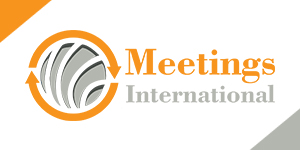Scientfic Sessions:
A high-level overview of emerging trends, technologies, and challenges in the field of oncology. From emerging therapies to personalized medicine, this session covers the latest advancements shaping the future of oncology.
We'll explore the dynamic interactions between tumor cells and their microenvironment, uncovering key insights into genetic and epigenetic alterations driving tumorigenesis. Additionally, we'll discuss the metabolic adaptations of cancer cells and their impact on tumor growth and survival.
We'll delve into the intricate mechanisms driving tumor development, proliferation, and metastasis, shedding light on the dynamic interplay between cancer cells and their surrounding microenvironment. Through insightful discussions, we'll explore the diverse pathways and genetic alterations underpinning different cancer types, offering valuable insights into disease progression and therapeutic resistance.
From traditional approaches like surgery and chemotherapy to cutting-edge innovations such as immunotherapy and targeted therapy, we'll delve into the nuances of each modality and discuss their respective strengths and limitations. Through engaging discussions, we'll highlight the importance of personalized treatment plans tailored to each patient's unique characteristics and tumor biology.
We’ll address the complexities of cancer care in older adults. We'll explore the unique considerations and obstacles faced in diagnosing, treating, and managing cancer in elderly patients, including issues related to comorbidities, functional status, and treatment tolerability.
We'll unravel the enigmatic role of cancer stem cells in tumor heterogeneity, recurrence, and metastasis, shedding light on their unique properties and therapeutic implications. Through engaging discussions, we'll explore the dynamic interplay between cancer stem cells and the tumor microenvironment, uncovering novel strategies to target these elusive cells and disrupt tumor growth.
From elucidating the molecular mechanisms of anticancer agents to exploring novel drug targets and treatment modalities, our discussions will encompass a diverse array of research endeavors. We'll also examine the translation of preclinical discoveries into clinical practice, evaluating the efficacy and safety of emerging therapies through rigorous clinical trials.
We'll delve into the latest advancements in imaging modalities, such as MRI, CT, PET, and molecular imaging, and discuss their applications in early cancer detection, accurate staging, and treatment monitoring. Furthermore, we'll examine the development of novel biomarkers and imaging probes that offer insights into tumor biology and facilitate personalized treatment strategies.
This session will illuminate the transformative potential of genomic technologies in shaping the future of cancer diagnosis and treatment. From elucidating the role of genetic mutations in cancer development to exploring personalized treatment strategies tailored to individual patients, our discussions will encompass cutting-edge research and innovative approaches.
Our esteemed speakers will delve into topics such as lifestyle modifications, vaccination initiatives, and environmental risk reduction measures aimed at lowering the incidence of cancer. Through engaging presentations and interactive discussions, attendees will have the opportunity to gain valuable knowledge, exchange ideas, and explore innovative approaches to cancer prevention.
This session will highlight the critical role of patient empowerment and advocacy in cancer care. Through informative presentations and interactive discussions, attendees will gain insights into the importance of educating patients about their diagnosis, treatment options, and supportive care resources. Additionally, we will explore the pivotal role of advocacy organizations and support networks in championing the needs of cancer patients and survivors.
This session will provide a comprehensive exploration of the latest advancements and breakthroughs in cancer research methodologies and clinical trial practices. Attendees will have the opportunity to engage with leading experts in the field, learn about innovative studies and therapeutic approaches, and discuss the implications of research findings on clinical practice.
We welcome submissions focusing on various aspects of survivorship, including long-term effects of cancer treatment, psychosocial support, survivorship care planning, and strategies for enhancing quality of life post-treatment. Additionally, we encourage abstracts addressing rehabilitation interventions aimed at improving physical, emotional, and cognitive function in cancer survivors.
We welcome abstracts covering a wide range of topics, including nanoparticle-based drug delivery systems, nano-scale imaging technologies, and nanomaterials for targeted therapy and immunotherapy.
We welcome abstracts covering a wide range of topics, including tobacco control, cancer screening programs, healthcare policies, health disparities, and implementation science. Join us in exploring the intersection of public health and policy in the fight against cancer and shaping the future of cancer care. Submit your abstracts today and contribute to advancing knowledge, fostering collaboration, and driving positive change in cancer prevention and control.
This session will provide a unique opportunity for clinicians, researchers, and healthcare professionals to share their impactful case studies and innovative clinical research findings in the field of oncology. We welcome abstracts covering a broad spectrum of topics, including challenging patient cases, novel treatment approaches, therapeutic outcomes, and lessons learned from clinical practice.

